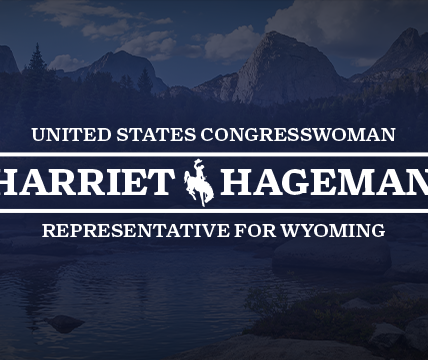
By Sofia Jeremias, WyoFile.com
When the U.S. Supreme Court two weeks ago overturned Roe v. Wade, Wyoming was one of 13 states prepared to capitalize on the moment and enact an abortion ban “trigger bill.” Most abortions in Wyoming will likely be illegal once Gov. Mark Gordon certifies the bill.
That has yet to happen. The law requires Attorney General Bridget Hill to review the Supreme Court decision within 30 days, meaning the ban will likely go into effect by July 29. (The AG’s office has not responded to multiple requests for comment.)
And with the certification deadline approaching, questions about enforcement and prosecution of the state’s abortion ban abound. From lawmakers to county attorneys, few seem to have concrete information on how it could play out.
“I think it’s going to be difficult for legal practitioners and physicians,” said Cheyenne attorney Abigail Fournier. “The heart of this new law outlawing abortions is so short and so vague.”
Medical condition exemptions under the ban are unclear, some say, which creates confusion about whether doctors could face prosecution. Others expressed concern that enforcing abortion bans will result in scrutiny of women’s medical records, internet search histories and natural miscarriages.
Lawmakers, county attorneys, law enforcement and a former Wyoming Supreme Court Justice could offer WyoFile scant clarity on how the state law change would actually be enacted. The trigger bill’s main sponsor, Rep. Rachel Rodriquez-Williams (R-Cody), did not respond to multiple requests for comment.
“Some choices are wrong, like intentionally killing innocent, unborn babies in the womb simply because they’re in the way of something we want,” said Rodriquez-Williams, speaking in favor of her bill and against an amendment providing exemptions for rape and incest during the 2022 legislative session.
“I am sympathetic to women who have chosen to have an abortion. I’ve seen the trauma. I’ve seen how it lingers on the hearts of so many women in our state,” she said. “But we shouldn’t be allowed to choose that. This bill represents tens of thousands of pro-life constituents in the great state of Wyoming and furthermore it has the support of large organizations that represent millions of Americans that oppose the murdering of the unborn”
“Are there going to be neighbors or individuals in a community that try to rat out somebody who appears to be pregnant and then isn’t?” Sharon Breitweiser, executive director of Pro-Choice Wyoming, asked. “I think the actual mechanisms are unclear.”
“People are still trying to understand the impact of Wyoming’s trigger law on both existing law as well as its application to very complicated clinical issues that are going to arise,” said Nick Healey, an attorney out of Cheyenne.
While Wyoming’s abortion ban currently includes exceptions for rape and incest as well as serious risk of death or “substantial and irreversible physical impairments,” providers say they are unsure what situations would qualify under the law.
Wyoming’s sole abortion provider previously told WyoFile she’d likely refer patients out of state in many cases, even for medically necessary abortions. “It has a chilling effect on providers who just don’t want to go down that road,” Dr. Giovannina Anthony said. “And I think it would have a chilling effect on me as well.”
The bill lacks definitions for “serious risk of death,” “substantial and irreversible physical impairment” and “major bodily function.” That creates a huge problem, according to attorney Fournier.
“Typically in our statutes we really try to define what things mean, what terms mean,” Fournier said. “And here we don’t have the definition of ‘serious risk of death.’ Is that 10%? 50%? 100%? Who makes the call about whether or not there’s a serious risk of death? When can that assertion be made?”
Fournier pointed to the example of an ectopic pregnancy — which occurs when a fertilized egg implants outside of the uterus, usually on the fallopian tube. A fetus will not survive in these cases, and if the pregnancy continues it can cause the tube to burst leading to “major internal bleeding,” according to the American College of Obstetricians and Gynecologists.
“[A woman] might be fine until it ruptures,” Fournier said. “So when are you supposed to make that determination that the mother’s life is at risk?”
Gov. Gordon’s office did not respond to a request for comment regarding the bill’s vague language and the potential impacts on medical care, although on the day Roe v. Wade was overturned he stated, “I signed Wyoming’s prohibition on abortion bill because I believe that the decision to regulate abortions should be left to the states.”
In 2020, Gordon vetoed SF 97 – Born alive infant-means of care, a bill mandating physicians to try and preserve the life of a baby born alive after an abortion, writing in his veto statement: “the bill prevents parents and physicians from making decisions about how to care for a baby with no chance of survival, when such a baby was born by induced labor because of a diagnosis of incompatibility with life. This strips parents of the ability to make medical decisions about their own family, and it strips physicians of the ability to make critical medical judgments.”
Ambiguous language in other states’ trigger ban laws have led to suits and injunctions.
In Louisiana, where a lawsuit is under way, the state’s Supreme Court upheld an injunction preventing the state’s abortion ban from going into effect. The Center for Reproductive Rights is arguing the state’s multiple trigger laws are “unconstitutionally vague.”
In an affidavit, one Louisiana doctor wrote, “ My greatest concern about the lack of clarity is how these laws would affect real life situations that physicians and patients face every day.”
“This has damaging consequences not only for women who want to seek abortions, but also for women who want to carry their pregnancies to term,” said Emma Roth, attorney at the National Advocates for Pregnant Women. “Because as the dragnet of pregnancy criminalization increases, more and more women will become subject to surveillance, investigation and prosecution for adverse pregnancy outcomes, even if they deeply desired to have children and lost their pregnancies.”
Some have predicted that prosecutors could use things like browsing histories, text messages, location data, payment data and information from period-tracking apps to build a case against women who obtain illegal abortions. The Washington Post reported abortion-related texts and web searches have already been utilized to prosecute women in Mississippi and Indiana.
There will always be lawbreakers, said Rep. Chip Neiman (R-Hulett), one of the Wyoming bill’s 15 co-sponsors. “There’s folks out there that want to try to figure out a way to say that this is just really hard to monitor and yeah, it is. But I look at it from the standpoint of, is that life worth protecting? Is that life valuable?”
When it comes to enforcing the abortion ban, he said, he has “no interest in trying to figure out how you can get into somebody’s home. I mean, what they do in the privacy of their home and stuff like that.”
Instead, he said, he sees it as a safeguard for unborn children.
“It was legal to take an innocent life of a child in Wyoming,” said Neiman. “After this law comes into effect, according to statute, it will no longer be legal to be able to do that. I trust our law enforcement to carry out the laws and the statutes of the state of Wyoming and by whatever means they do that, then they will do that. I trust them to do that.”
Once the abortion ban is enacted, law enforcement will likely meet with county attorneys to discuss how it will work, according to Byron Oedekoven, executive director of Wyoming Association of Sheriffs and Chiefs of Police.
“Usually the county attorneys, over the course of the last several years, during Police Memorial Week will take time to do training for their local law enforcement on new laws, new processes and new procedures,” Oedekoven said.
It seems likely that much of the power to interpret Wyoming’s abortion ban will fall to local prosecutors.
WyoFile called every county attorney’s office in the state seeking comment on how they might approach illegal abortion cases once Wyoming’s ban goes into effect. Out of 23 offices, two responded to requests for comment by the time of publication.
“I was elected to enforce the law and not make my own,” Washakie County Attorney John Worrall wrote in an email. “Each case and each defendant has its own merits and drawbacks. As such, it would be inappropriate to announce any decision respecting prosecution or lack thereof at this time.”
“Obviously we enforce the law,” said Johnson County Attorney Tucker Ruby. But he declined to comment specifically on how enforcement of Wyoming’s abortion ban might work. “I don’t anticipate it being a huge issue for us in Johnson County.”
When asked what he might do if a resident of his county took an abortion pill at home, Ruby said he doesn’t think that’s likely to happen. “And if that did happen, the likelihood that law enforcement finds out about it is pretty minimal,” Ruby said. “That’s an extreme scenario. If we found out about it, then yeah, then I would be tasked with figuring out how we prosecute if we do prosecute it.”
He noted that if the law does create issues, “one of the benefits of my job is I have full prosecutorial discretion.”
Nearly 90 elected prosecutors from across the country signed a joint statement declining “to use our offices’ resources to criminalize reproductive health decisions.” None were from Wyoming.
Former Wyoming Supreme Court Chief Justice William Hill declined to comment. “I have never looked at it,” Hill said. “I don’t know the first thing about it. That is not something that ever came before the court in any fashion while I was on the court.”
Prosecuting women and doctors for obtaining or providing abortions is new legal ground, but there have been cases regarding related issues.
“Even though Dobbs is newly overruling Roe and eliminating the constitutional right to abortion, we have seen pregnant people face criminalization for a very long time, including in Wyoming,” said Roth, National Advocates for Pregnant Women attorney.
She points to a series of cases in Laramie County prosecuting women for using substances during pregnancy.
“Those cases, though they weren’t in the context of abortion, preview and highlight what abortion criminalization is likely to look like,” Roth said.
In one case Roth worked on, the state of Wyoming pursued child endangerment charges, which penalize giving children illicit drugs, against Leigha Stewart six days after she gave birth at Cheyenne Regional Medical Center.
The state claimed the baby tested positive for amphetamines and opiates and held Stewart responsible because she “passed those drugs to her newborn child via the umbilical cord in the seconds after birth and before the cord was severed.”
The Legislature has yet to pass a law explicitly criminalizing pregnant women who use substances, and Stewart’s lawyers argued previous court precedents established “If a criminal statute is ambiguous, the ambiguity should be resolved in favor of leniency and the defendant.”
The charges were ultimately dropped because at the time Wyoming law established that a fetus was not considered a child, according to Roth.
The underlying theme behind the cases in Wyoming and others Roth works on across the country is “that prosecutors are subjecting a pregnant person to criminalization because of a perceived risk of harm to the fetus rather than providing them with access to health care or other support,” she said.
“There is a lot of scrambling at the moment to figure out how medical providers, how legislatures, how courts are interpreting the scope of that sort of language,” said Roth. “This particular language used in the Wyoming statute is not exceptional — it’s similar to the language used in other state bans, but the situation we’re in is completely unprecedented.”




